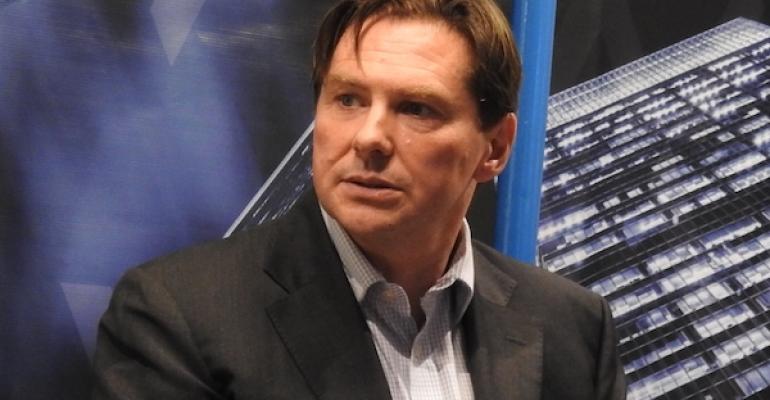Sitting down with Ryan, also an Executive Vice President of the Finnish technology company, earlier this week, I admit to being rather concerned that I’d be assailed with tech-evangelist type hype and buzzwords, and predictable soundbites about how shipping was in the technological dark ages. I am pleased to say I turned out to be completely wrong.
Instead Ryan presented a forward thinking vision, with Wärtsilä taking a stewardship role in collaborating to use technology to find practical solutions to addressing issues such as efficiency and safety.
So is shipping conservative and stuck in a technological dark age? “I think it’s one of the industries with the highest potential, I think it’s far more progressive than people give it credit for,” he tells Seatrade Maritime News.
“It quite frustrates me when people say the maritime industries are conservative, because there are aspects of it that are difficult to deal with and it doesn’t make sense to change. Digitalisation is something that I often think which is a lot of buzzwords and lot of seduction around hype that’s going to deliver huge value and in certain areas, but it doesn’t make commercial sense to do things. In other areas it does and maritime is a very good example of that,” Ryan explains.
Join the Smart Shipping debate at Seatrade Maritime Middle East
He sees plenty of innovation and leadership in the industry but also notes that when it comes to digitalisation maritime works in silos rather than as a whole. “There are huge opportunities to work together for the benefit of the industry.”
An Oceanic Awakening
This is where Wärtsilä’s “An Oceanic Awakening” and SEA20 initiatives come in with the company aiming to encourage collaboration across the maritime and energy industries to develop digital solutions for the future.
Ryan sees the company as ideally placed to take a leading role given its large install base and product range in the industry covering from ship design to the full life cycle, giving it a full view of the value chain. “You need to have a bold strategy that is genuinely about stewardship that’s about saying we need to leave this industry in a better place. The brutal reality of digitalisation in the maritime industry is we can’t afford to do everything independently, we’ve got to come together on some things.”
Some conversations will be easier than others and areas such as fuel efficiency, predictive maintenance, asset management and cyber-security, where there are clear benefits to the industry. These issues may not necessarily be easier to solve but provide a place to start working together.
Acquisition of Transas
Wärtsilä’s acquisition of Transas earlier this year has a provided a deep expertise around ports which fits its eco-system approach. “The thing that’s interesting to me is the full integration across port operations, logistics, the sea leg and the other end,” Ryan says. “There is tremendous wastage in the handover between different parts of the eco-system. If you can focus on making that integration smoother there is tremendous value.”
When it comes to the much talked about development of autonomous vessels he says: “We take a very pragmatic approach to this. There’s a lot of hype around this. There is no doubt that in certain sectors and certain capabilities there will be crewless vessels that truly autonomous. Now that could be drone tugs in ports for example.” However, it is unlikely to be cruise ships or deepsea merchant vessels.
Autonomous vessels
Indeed Wärtsilä is working an autonomous, or IntelliTug, in partnership with the Maritime & Port Authority of Singapore (MPA) and customer PSA Marine, at its new Acceleration Centre in Singapore. Initially though the focus is on improving efficiency and safety of the tug for the benefit of its crew, rather than replacing them.
“We have a pragmatic view, we have technology and we’re looking to prove business cases where it drives value, not be seduced about chasing some nebulous that may never happen. It’s about applying technology to the right use case, not being seduced by technology and trying to find a use case that makes it fit,” Ryan concludes.
Copyright © 2024. All rights reserved. Seatrade, a trading name of Informa Markets (UK) Limited. Add Seatrade Maritime News to your Google News feed.


